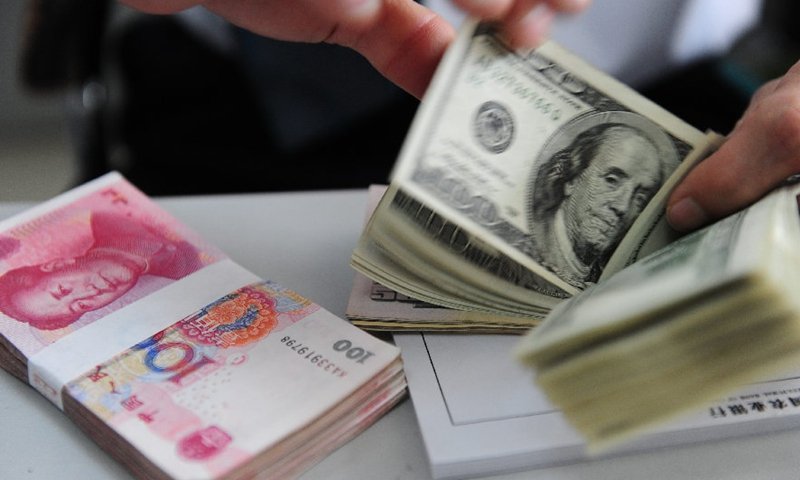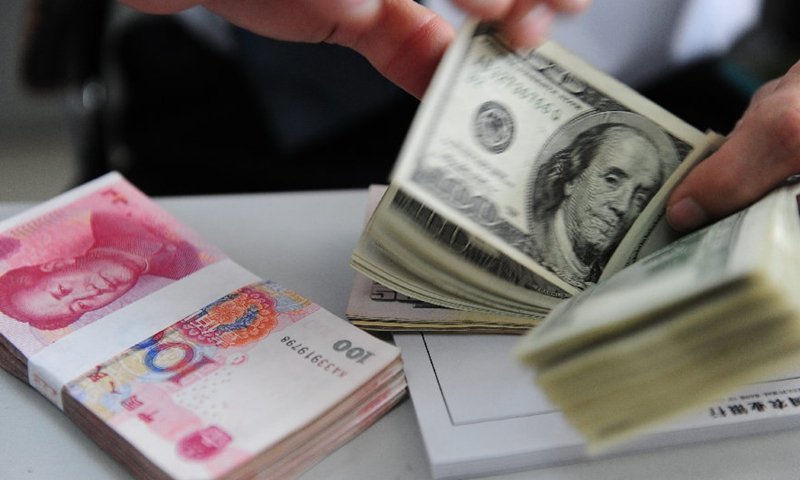
A teller counts U.S. dollar bills at a bank in Qionghai, south China’s Hainan Province.Photo:Xinhua
When US Treasury Secretary Janet Yellen on Tuesday testified before the House Financial Services Committee, she said that one of her concerns is how best to protect the international status of the US dollar as US financial sanctions have pushed more countries seek alternative financial transaction methods that do not involve the US dollar, VOA reported.
The remarks from Yellen have shed light on growing concerns regarding US dollar hegemony. Experts believe that the weaponization of the US dollar will reduce its dominance as the world moves toward local currency settlements and accelerate policies to facilitate de-dollarization. China and other countries are actively promoting local currency settlements and multilateral cooperation, offering more choices and possibilities for the global financial order.
In her testimony before the Committee on Financial Services in the US House of Representatives, Yellen said that the more sanctions the US impose, the more countries will seek financial transaction methods that do not involve the US dollar, VOA reported.
For a long time, the US has abused its dollar hegemony, shifting domestic crises and harvesting global wealth by damaging the economic and financial stability and well-being of other countries. It is also used as a tool to impose financial sanctions, isolating other countries from the dollar payment system.
There has been an accelerating trend of de-dollarization over recent years, driven by the US wielding its financial sanctions, leading some countries to be unable to settle in dollars and prompting them to seek alternatives, Zhao Qingming, a Beijing-based veteran financial expert, told the Global Times on Wednesday.
“This will have a certain impact on the international status of the US dollar. In the short term, the position of the US dollar should remain stable, but over time, its position may weaken,” Zhao said.
The dollar hegemony has led to other countries exploring the path of de-dollarization through diversification of currency reserves, establishing local currency settlement mechanisms, and strengthening international cooperation.
China’s participation in this movement has been not only to meet the needs linked to the internationalization of the yuan, but also to provide more diversified choices for the world, Zhao said.
In June, Saudi Arabia joined a central bank digital currency initiative for international trade, which may set the stage for wider local currency payments for oil trade between China and Saudi Arabia and reduce the reliance on the US dollar.
In April, the Maldivian Minister of Economic Development and Trade Mohamed Saeed confirmed that Maldivians would soon have the option to settle their import payments using Chinese yuan to meet the government’s objective to diversify its settling currency from the US dollar, Xinhua News Agency reported.
A report from Society for Worldwide Interbank Financial Telecommunication showed that in May, the Chinese yuan maintained its position as the fourth most active currency in global payments by value for a seventh consecutive month with a share of 4.47 percent.


